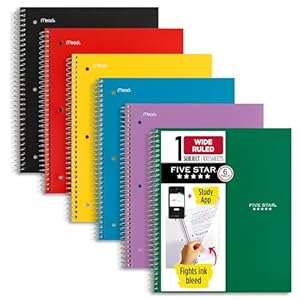Information is restricted.
Information deficits are limitless.
Realizing one thing–all the belongings you don’t know collectively is a type of information.
There are numerous types of information–let’s consider information when it comes to bodily weights, for now. Obscure consciousness is a ‘mild’ type of information: low weight and depth and period and urgency. Then particular consciousness, possibly. Notions and observations, for instance.
Someplace simply past consciousness (which is imprecise) may be understanding (which is extra concrete). Past ‘understanding’ may be understanding and past understanding utilizing and past which might be most of the extra advanced cognitive behaviors enabled by understanding and understanding: combining, revising, analyzing, evaluating, transferring, creating, and so forth.
As you progress left to proper on this hypothetical spectrum, the ‘understanding’ turns into ‘heavier’–and is relabeled as discrete features of elevated complexity.
It’s additionally value clarifying that every of those could be each causes and results of data and are historically regarded as cognitively impartial (i.e., completely different) from ‘understanding.’ ‘Analyzing’ is a pondering act that may result in or enhance information however we don’t think about evaluation as a type of information in the identical manner we don’t think about jogging as a type of ‘well being.’ And for now, that’s high quality. We will permit these distinctions.
There are numerous taxonomies that try to supply a sort of hierarchy right here however I’m solely curious about seeing it as a spectrum populated by completely different varieties. What these varieties are and which is ‘highest’ is much less necessary than the truth that there are these varieties and a few are credibly regarded as ‘extra advanced’ than others. (I created the TeachThought/Heick Learning Taxonomy as a non-hierarchical taxonomy of pondering and understanding.)
What we don’t know has at all times been extra necessary than what we do.
That’s subjective, after all. Or semantics–and even pedantic. However to make use of what we all know, it’s helpful to know what we don’t know. Not ‘know’ it’s within the sense of possessing the information as a result of–effectively, if we knew it, then we’d understand it and wouldn’t should be conscious that we didn’t.
Sigh.
Let me begin over.
Information is about deficits. We’d like to pay attention to what we all know and the way we all know that we all know it. By ‘conscious’ I believe I imply ‘know one thing in type however not essence or content material.’ To vaguely know.
By etching out a sort of boundary for each what you already know (e.g., a amount) and the way effectively you already know it (e.g., a high quality), you not solely making a information acquisition to-do checklist for the long run, however you’re additionally studying to raised use what you already know within the current.
Put one other manner, you’ll be able to change into extra acquainted (however maybe nonetheless not ‘know’) the boundaries of our personal information, and that’s a beautiful platform to start to make use of what we all know. Or use effectively.
Nevertheless it additionally may also help us to know (know?) the boundaries of not simply our personal information, however information usually. We will start by asking, ‘What’s knowable?” and ‘Is there any factor that’s unknowable?” And that may immediate us to ask, ‘What will we (collectively, as a species) know now and the way did we come to understand it? When did we not understand it and what was it prefer to not understand it? What had been the results of not understanding and what have been the results of our having come to know?
For an analogy, think about an vehicle engine disassembled into tons of of components. Every of these components is a bit of data: a reality, a knowledge level, an thought. It could even be within the type of a tiny machine of its personal in the way in which a math system or an moral system are forms of information but in addition useful–helpful as its personal system and much more helpful when mixed with different information bits and exponentially extra helpful when mixed with different information methods.
I’ll get again to the engine metaphor in a second. But when we are able to make observations to gather information bits, then type theories which might be testable, then create legal guidelines primarily based on these testable theories, we’re not solely creating information however we’re doing so by whittling away what we don’t know. Or possibly that’s a nasty metaphor. We’re coming to know issues by not solely eliminating beforehand unknown bits however within the technique of their illumination, are then creating numerous new bits and methods and potential for theories and testing and legal guidelines and so forth.
Once we no less than change into conscious of what we don’t know, these gaps embed themselves in a system of data. However this embedding and contextualizing and qualifying can’t happen till you’re no less than conscious of that system–which suggests understanding that relative to customers of data (i.e., you and I), information itself is characterised by each what is understood and unknown–and that the unknown is at all times extra highly effective than what’s.
For now, simply permit that any system of data consists of each recognized and unknown ‘issues’–each information and information deficits.
An Instance Of One thing We Didn’t Know
Let’s make this slightly extra concrete. If we study tectonic plates, that may assist us use math to foretell earthquakes or design machines to foretell them, for instance. By theorizing and testing ideas of continental drift, we received slightly bit nearer to plate tectonics however we didn’t ‘know’ that. We might, as a society and species, know that the normal sequence is that studying one factor leads us to study different issues and so may suspect that continental drift may result in different discoveries, however whereas plate tectonics already ‘existed,’ we hadn’t recognized these processes so to us, they didn’t ‘exist’ when the truth is they’d all alongside.
Information is odd that manner. Till we give a phrase to one thing–a collection of characters we used to establish and talk and doc an thought–we consider it as not present. Within the 18th century, when Scottish farmer James Hutton started to make clearly reasoned scientific arguments in regards to the earth’s terrain and the processes that type and alter it, he assist solidify fashionable geography as we all know it. In the event you do know that the earth is billions of years previous and consider it’s solely 6000 years previous, you received’t ‘search for’ or type theories about processes that take tens of millions of years to happen.
So perception issues and so does language. And theories and argumentation and proof and curiosity and sustained inquiry matter. However so does humility. Beginning by asking what you don’t know reshapes ignorance right into a sort of information. By accounting in your personal information deficits and limits, you might be marking them–both as unknowable, not at present knowable, or one thing to be discovered. They cease muddying and obscuring and change into a sort of self-actualizing–and clarifying–technique of coming to know.
Studying.
Studying results in information and information results in theories identical to theories result in information. It’s all round in such an apparent manner as a result of what we don’t know has at all times mattered greater than what we do. Scientific information is highly effective: we are able to cut up the atom and make species-smothering bombs or present vitality to feed ourselves. However ethics is a sort of information. Science asks, ‘What can we do?’ whereas humanities may ask, ‘What ought to we do?’
The Fluid Utility Of Information
Again to the automotive engine in tons of of components metaphor. All of these information bits (the components) are helpful however they change into exponentially extra helpful when mixed in a sure order (solely one in every of trillions) to change into a functioning engine. In that context, all the components are comparatively ineffective till a system of data (e.g., the combustion engine) is recognized or ‘created’ and actuated after which all are vital and the combustion course of as a type of information is trivial.
(For now, I’m going to skip the idea of entropy however I actually in all probability shouldn’t as a result of which may clarify every thing.)
See? Information is about deficits. Take that very same unassembled assortment of engine components which might be merely components and never but an engine. If one of many key components is lacking, it’s not doable to create an engine. That’s high quality if you already know–have the information–that that half is lacking. However should you suppose you already know what you should know, you received’t be searching for a lacking half and wouldn’t even bear in mind a functioning engine is feasible. And that, partially, is why what you don’t know is at all times extra necessary than what you do.
Each factor we study is like ticking a field: we’re lowering our collective uncertainty within the smallest of levels. There may be one fewer factor unknown. One fewer unticked field.
However even that’s an phantasm as a result of all the bins can by no means be ticked, actually. We tick one field and 74 take its place so this could’t be about amount, solely high quality. Creating some information creates exponentially extra information.
However clarifying information deficits qualifies present information units. To know that’s to be humble and to be humble is to know what you do and don’t know and what we have now up to now recognized and never recognized and what we have now achieved with all the issues we have now discovered. It’s to know that once we create labor-saving units, we’re not often saving labor however relatively shifting it elsewhere.
It’s to know there are few ‘huge options’ to ‘huge issues’ as a result of these issues themselves are the results of too many mental, moral, and behavioral failures to rely. Rethink the ‘discovery’ of ‘clear’ nuclear vitality, for instance, in mild of Chernobyl, and the seeming limitless toxicity it has added to the environment. What if we changed the spectacle of data with the spectacle of doing and each brief and long-term results of that information?
Studying one thing usually leads us to ask, ‘What do I do know?’ and generally, ‘How do I do know I do know? Is there higher proof for or towards what I consider I do know?” And so forth.
However what we regularly fail to ask once we study one thing new is, ‘What else am I lacking?’ What may we study in 4 or ten years and the way can that sort of anticipation change what I consider I do know now? We will ask, ‘Now I that I do know, what now?”
Or relatively, if information is a sort of mild, how can I take advantage of that mild whereas additionally utilizing a imprecise sense of what lies simply past the sting of that mild–areas but to be illuminated with understanding? How can I work exterior in, starting with all of the issues I don’t know, then shifting inward towards the now clear and extra humble sense of what I do?
A intently examined information deficit is a staggering sort of information.
Trending Merchandise










